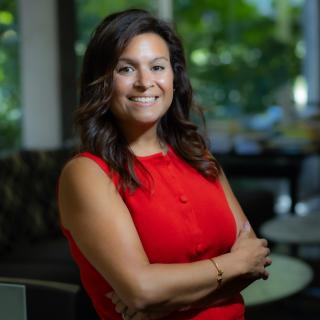New Resources for Educators, Policy Makers and Families of Young DLLs
April 15, 2016
The challenges of educating young Hispanic DLLs is currently at the forefront of many conversations. Due to the sheer numbers of young DLLs aging into early care settings and kindergarten, the learning outcomes for preschool age DLLs has mounting implications for educators and policy makers alike. One aspect of the conversation centers on the importance of access to high quality preschool programs for young DLLS. Others focus on the challenges faced by educators and administrators when serving this growing population in their classrooms and schools. Policy makers and research groups have been working simultaneously to identify strategies and programmatic approaches that promise to help both teachers and their students.
One facet of the conversation that has become increasingly emphasized is the potential benefit that bilingualism can bring if home language learning is fostered and valued within a school context for instruction. This goes against traditional perspectives on English language acquisition programs which have prized English proficiency as the overarching goal, using the home language as a transitional tool for adding English. Such practices have been shown to contribute to the loss of first language for students, which presents other challenges for children and families. Still, despite the benefits of dual language supportive classroom environments for early learners, this approach is not without limitations. This includes the lack of teachers who are bilingual themselves as well as a short supply of English speaking teachers who have the necessary training and guidance to work with young DLLs effectively. A lack of widespread understanding of not only best practices, but also of knowledge of DLL student learning trajectories also hinders this approach.
While research and evidence exists, documented hurdles in existing dual language efforts include a lack of uniformity across policies that regulate teacher preparation and credentialing, identification of DLL children’s language proficiencies for placement in bilingual programs, standards and guidance for teachers, and approaches towards family engagement. The lack of cohesive policies in turn creates DIY-type approaches and practices that vary widely from school to school, district to district, and state to state. This is particularly problematic when even those in leadership roles are in need of more information.
In efforts to help fill these gaps, the Heising-Simons and McKnight Foundations recently provided support for researchers to convene for a National Research Summit on the Early Care and Education of Dual Language Learners in Washington DC in the fall of 2014. Researchers were commissioned to create five papers that focused on new directions in research, policy, and practice relative to young DLLs. The summit allowed the researchers to present these papers as well as to engage in conversation with each other about how to move the field forward. Specifically, the topics of the papers include:
- Research Based Models and Best Practices for DLLs across PreK-3;
- Perspectives on Assessment of DLLs, PreK-3;
- Human Resource Development;
- The Critical Role of Leadership in Programs Designed for DLLs,
- PreK-3; Policy Advances & Levers Related to DLLs in PreK-3
These papers are now accessible, as are shorter briefs tailored to various audiences including administrators, “policy makers,” “policy thinkers,” and a specific set for parents available in seven different languages. Because the briefs are a product of both the papers and the discussions of the summit, they provide a rich set of recommendations for all the audiences that they were intended for.
While the research community and the educators that work with young DLLs work to provide the best experiences possible, there is still much to be learned. Educators and practitioners who are steeped in their already demanding work need access to current information and tools that can guide their practice. These papers are an important resource as they address not only researchers and policy makers, but parents and teachers as well. In short, change can only come about when these key groups are included as participants in the discussion. The papers highlight the importance of specialized approaches to educating dual language learners and how directors, teachers, families and children need to be supported, and why.
Alexandra Figueras-Daniel, Ph.D. is an assistant research professor at NIEER.
The Authors
Dr. Figueras-Daniel was awarded a Young Scholars Program grant from the Foundation for Child Development to investigate coaching and professional development of Latina preschool teachers working with DLLs. At NIEER, she leads this study as well a project to develop a Latina leadership pipeline in ECE.
About NIEER
The National Institute for Early Education Research (NIEER) at the Graduate School of Education, Rutgers University, New Brunswick, NJ, conducts and disseminates independent research and analysis to inform early childhood education policy.

